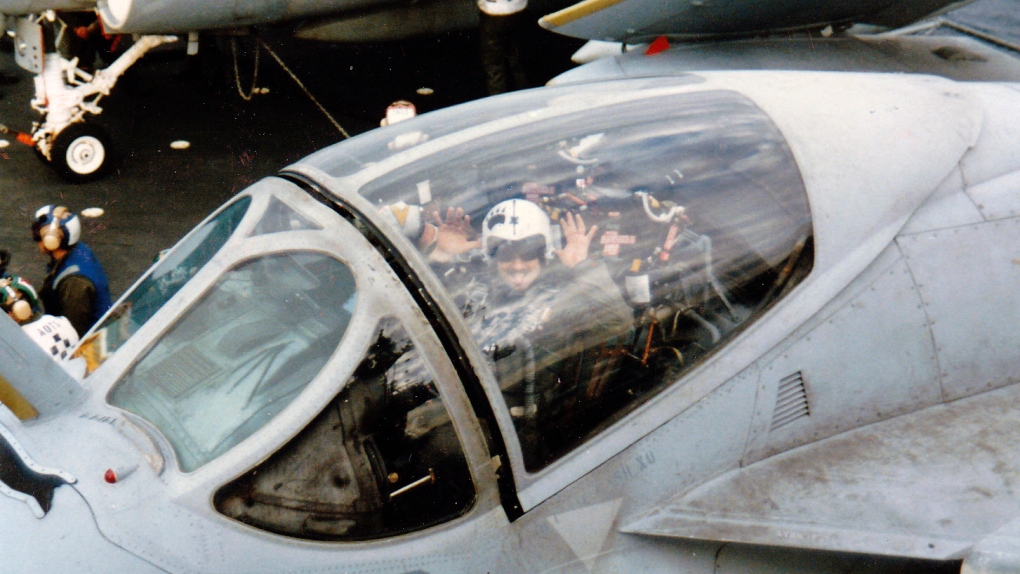WASHINGTON -
A Pentagon study has found high rates of cancer among U.S. military pilots and for the first time has shown that ground crews who fuel, maintain and launch those aircraft are also getting sick.
The data had long been sought by retired military aviators who have raised alarms for years about the number of air and ground crew members they knew who had cancer. They were told that earlier military studies had found they were not at greater risk than the general U.S. population.
In its yearlong study of almost 900,000 service members who flew on or worked on military aircraft between 1992 and 2017, the Pentagon found that air crew members had an 87 per cent higher rate of melanoma and a 39 per cent higher rate of thyroid cancer, while men had a 16 per cent higher rate of prostate cancer and women a 16 per cent higher rate of breast cancer. Overall, the air crews had a 24 per cent higher rate of cancer of all types.
The study showed ground crews had a 19 per cent higher rate of brain and nervous system cancers, a 15 per cent higher rate of thyroid cancer and a nine per cent higher rate of kidney or renal cancers, while women had a seven per cent higher rate of breast cancer. The overall rate for cancers of all types was three per cent higher.
There was some good news reported as well. Both ground and air crews had far lower rates of lung cancer, and air crews also had lower rates of bladder and colon cancers.
The data compared the service members with the general U.S. population after adjusting for age, sex and race.
The Pentagon said the new study was one of the largest and most comprehensive to date. An earlier study had looked at just Air Force pilots and had found some higher rates of cancer, while this one looked across all services and at both air and ground crews. Even with the wider approach, the Pentagon cautioned that the actual number of cancer cases was likely to be even higher because of gaps in the data, which it said it would work to remedy.
The study "proves that it's well past time for leaders and policy makers to move from skepticism to belief and active assistance," said retired Air Force Col. Vince Alcazar, a member of the Red River Valley Fighter Pilots Association, which had lobbied the Pentagon and Congress for help. Alcazar serves on the association's medical issues committee.
The study was required by Congress in the 2021 defense bill. Now, because higher rates were found, the Pentagon must conduct an even bigger review to try to understand why the crews are getting sick.
Isolating potential causes is difficult, and the Pentagon was careful to note that this study "does not imply that military service in air crew or ground crew occupations causes cancer, because there are multiple potential confounding factors that could not be controlled for in this analysis," such as family histories, smoking or alcohol use.
But aviation crews have long asked for the Pentagon to look closely at some of the environmental factors they are exposed to, such as jet fuels and solvents used to clean and maintain jet parts, sensors and their power sources in aircraft nose cones, and the massive radar systems on the decks of the ships they land on.
When Navy Capt. Jim Seaman would come home from a deployment aboard an aircraft carrier, his gear would reek of jet fuel, his widow Betty Seaman said. The A-6 Intruder pilot died in 2018 at age 61 of lung cancer. Betty Seaman still has his gear stored and it still smells of fuel, "which I love," she said.
She and others wonder if there's a link. She said crews would talk about how even the ship's water systems would smell of fuel.
She said she and others have mixed feelings about finally seeing in data what they have suspected for years about the aviation cancers. But "it has the potential to do a lot of good as far as early communication, early detection," she said.
The study found that when crew members were diagnosed with cancer, they were more likely to survive than members of the general population, which the study suggested was because they were diagnosed earlier due to regular required medical checkups and were more likely to be in better health because of their military fitness requirements.
The Pentagon acknowledged that the study had gaps that likely led to an undercount of cancer cases.
The military heath system database used in the study did not have reliable cancer data until 1990, so it may not have included pilots who flew early-generation jets in the prior decades.
The study also did not include cancer data from the Department of Veterans Affairs or state cancer registries, which means it did not capture cases from former crew members who got sick after leaving the military medical system.
"It is important to note that study results may have differed had additional older former service members been included," it said.
To remedy that, the Pentagon is now going to pull data from those registries to add to the total count, the study said.
The second phase of the study will try to isolate causes. The 2021 bill requires the Defense Department not only to identify "the carcinogenic toxicants or hazardous materials associated with military flight operations," but also determine the type of aircraft and locations where diagnosed crews served.
After her husband got sick, Betty Seaman asked him if he would have chosen differently, knowing his service might be linked to his cancer.
"I flat-out asked Jim. And he, without hesitation, said, `I would have still done it."'









































